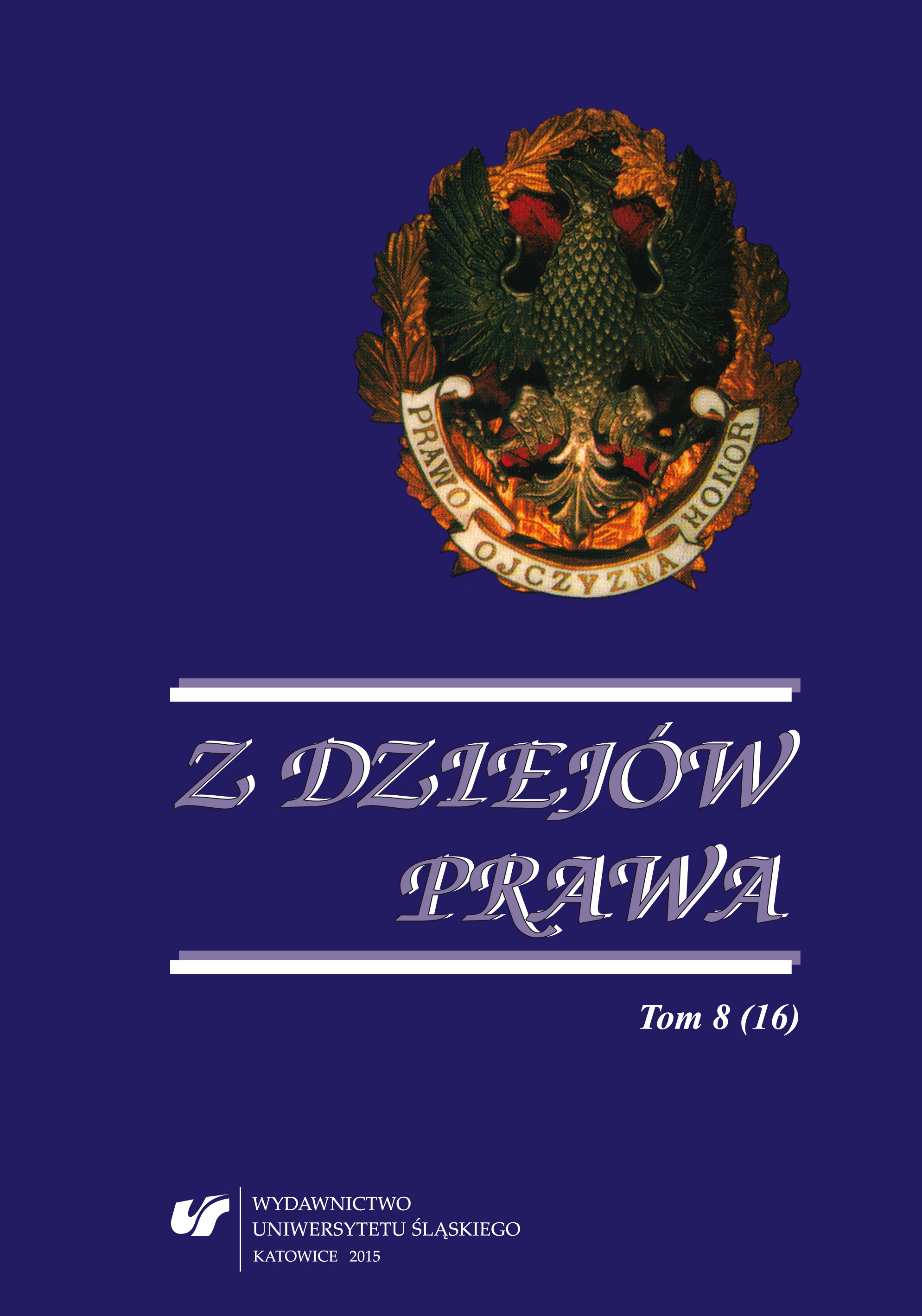PZPR a związki zawodowe w sądownictwie po sierpniu 1980 r.
Polish United Workers’ Party, Labour Unions, and the Judiciary After August of 1980
Author(s): Kamil NiewińskiSubject(s): History of Law
Published by: Wydawnictwo Uniwersytetu Śląskiego
Summary/Abstract: The burgeoning social reform movement which was conceived under the banners of NSZZ Solidarity in September of 1980 had numerous sympathisers within the judiciary system. The revolutionary ideas of Solidarity constituted a threat to the functioning of the judiciary system, closely monitored by the legislative and executive powers. The Ministry of Justice, left without the support of the Political Bureau and the Department of Administration—part of the Central Committee of the Polish United Workers’ Party which supervised the judiciary—was unable to single-handedly stop the processes of rejuvenation among the judiciary staff. Both the judges as well as the administrative personnel, convinced of the necessity to undertake thorough reforms in the judiciary system, in order to achieve systemic guarantees of autonomy and independence of the judges, joined Solidarity in great numbers, ultimately forming an occupational branch of the union called NSZZ Solidarity of the Judiciary Staff. However, not all judges completely supported the ideas of the reform movement post-August 1980. The majority of the judges did not identify with the revolutionary program of the judiciary section of Solidarity; nonetheless, they understood the necessity of reform based on gaining influence on personnel decisions made by the Ministry of Justice and administrative boards of the judiciary. In fact, the autonomous union called NSZZ Solidarity of the Judicial Staff was initially formed by the aforementioned group of judges. Moreover, it was supported by the Ministry of Justice, in the hopes of taking control over the union and limiting the influence of Solidarity on the judiciary system. The autonomous judges, however, resisted those attempts at influencing their activities by the administration. In time, the judges who belonged to either of the unions—which, in total, comprised about 70% of the judiciary staff—began working together in order to exert pressure on the Ministry of Justice. This reformatory activity, however, was brought to an end by the martial law, introduced in Poland on December 13th, 1981.
Journal: Z Dziejów Prawa
- Issue Year: 16/2015
- Issue No: 8
- Page Range: 143-168
- Page Count: 26
- Language: Polish

